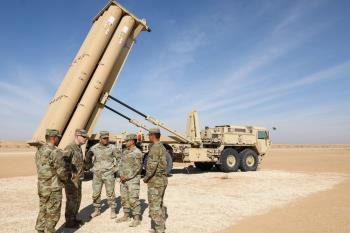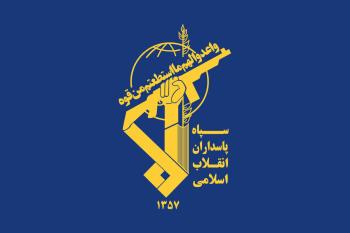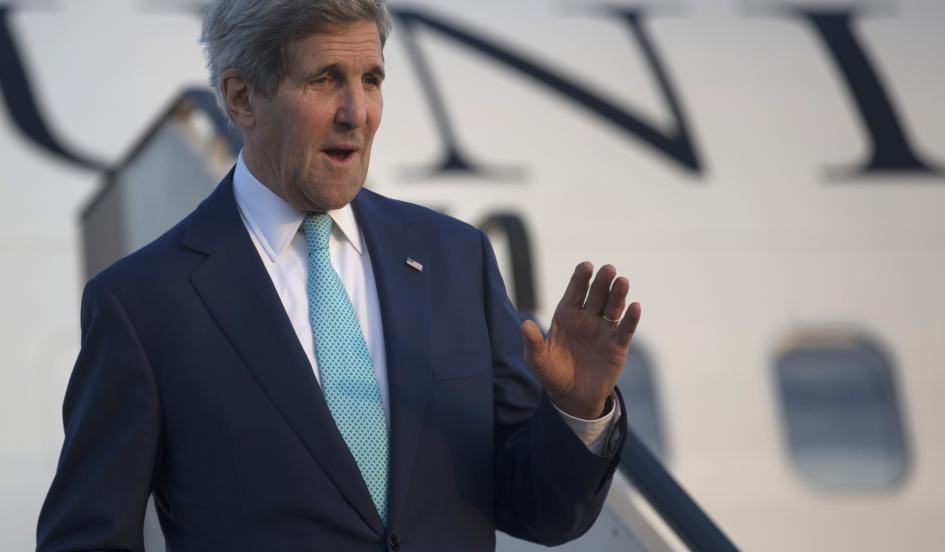Alwaght-U.S. Secretary
of State John Kerry arrives in Sharm el-Sheikh March 13, 2015, to participate
in the Egypt Economic Development Conference, as Reuters recorded.
SHARM
EL-SHEIKH, Egypt (Reuters) - The United States will have to negotiate with
Syrian President Bashar al-Assad for a political transition in Syria and is
exploring ways to pressure him into agreeing to talks, U.S. Secretary of State
John Kerry told CBS News in an interview.
Washington has
long insisted that Assad must be replaced through a negotiated, political
transition, but the rise of a common enemy, hardline militant group Islamic
State, appears to have slightly softened the West's stance toward him.
In the
interview broadcast on Sunday, Kerry did not repeat the standard U.S. line that
Assad had lost all legitimacy and had to go.
Syria's civil war is now into its fifth year, with hundreds of thousands
killed and millions of Syrians displaced.
"We have to negotiate in the end," Kerry said. "We've always been willing to negotiate
in the context of the Geneva I process," he added, referring to a 2012
conference that called for a negotiated transition to end the conflict.
Kerry said the
United States and other countries, which he did not name, were exploring ways
to reignite the diplomatic process to end the conflict in Syria.
"What we're pushing for is to get him [Assad] to come and do that,
and it may require that there be increased pressure on him of various kinds in
order to do that," the secretary of state said.
"We've made it very clear to people that we are looking at increased
steps that can help bring about that pressure," he added.
The United
States led efforts to convene a U.N.-backed peace talks in Geneva last year
between Western-backed Syrian opposition representatives and a government
delegation. The talks collapsed after
two rounds and no fresh talks have been scheduled.
Russia convened
some opposition and government figures in January for talks on the crisis but
they yielded little progress and the main opposition coalition boycotted them.
"To get the Assad regime to negotiate, we're going to have to make
it clear to him that there is a determination by everybody to seek that political
outcome and change his calculation about negotiating," Kerry said.
"That's under way right now.
And I am convinced that, with the efforts of our allies and others,
there will be increased pressure on Assad."
Syria sank into
civil war after a peaceful street uprising against four decades of Assad family
rule began in March 2011. The revolt
spiraled into an armed insurgency, which has deepened with the rise of Islamic
State and other hardliners.
Assad seems
more likely to survive the Syrian crisis than at any point since it began. Iran's support for Assad is as solid as ever,
with Russia showing no sign of abandoning him.
U.S-led forces
started air strikes against the Islamic State group in Syria and Iraq in the
summer. Washington has said the campaign
in Syria is not coordinated with the Syrian military, which also views the
group as its enemy.
The war has
killed more than 200,000 people and displaced close to half the population,
according to the United Nations.
Damascus accuses its Western and Gulf Arab opponents of seeking to
destroy the country by providing aid to an insurgency now dominated by
jihadists, who also pose a threat to the West.
Assad appears
to be betting that the U.S.-led campaign against Islamic State will force
Washington to engage with him.



























